Campus must be a site for debate, not hate
by Kevin J Naidoo,
2016-03-11 05:54:03.0
ONE of the chemistry classes I took at the University of Cape Town (UCT) in the 1980s was taught by Prof Alistair Stephen, the Oxford-trained chair of organic chemistry. A brilliant chemist, the professor always wore a jacket and tie, and delivered his lectures in a nasal Oxford drawl.
To students in the struggle movement, professors such as Stephen appeared to be the living establishment. I remember clearly my astonishment at finding out that he had participated in a student-staff collaboration that had successfully campaigned to keep the apartheid police off campus and preserve UCT as a haven for freedom of expression.
I should not have been so surprised, because over the years, during the time I have spent on campuses across the world, it has become clear that every scholar on every one of the great campuses shares a common pursuit of the truth, no matter what their field of study. That pursuit is possible only through open debate and contestation in a space where proponents are assured of no threat of violence and personal vilification.
Evidence-based argument is the hallmark of the progressive intellectualism that defines every leading university, from Bangalore to Berkeley to Cape Town. Scholars judiciously assemble evidence into a coherent argument feeding human progress. We can look to the north and south, to the east and west, for countless examples where open rational debate is the proven antidote to tyranny and oppression.
Our universities form the cornerstone of this progressive world view, which guards our hard-fought freedoms to protest, to differ, to convince and to learn. Our discoveries come through freedom of expression making our public policy less partisan, our health care more effective and our analytical and artistic commentary more profound.
The protesting students point to problems in our country both on and off campus that we cannot ignore. The professoriate on many campuses shows little resemblance to SA’s largely black and African demographic. Even the red gowns in which we cloak our doctoral graduates have been copied from the Oxbridge system that honours our colonial past, while bearing no resemblance to our local university colours that should be celebrated on graduation day.
Our faculties are under pressure to deliver quality graduates sourced from an unevenly resourced primary education pool. The prevailing racial inequity borne out by every economic metric lines the base of our national frustration, but do violent interventions not perpetuate a male-dominated culture of the might-is-right rule of law that our women and children suffer from daily? When some among us throw down their books and march through the campus with torches to burn down the very means that promises a path out of poverty, we must speak out.
In just a few days, more than 900 members of the UCT community have endorsed an open letter, available on the university’s website, rejecting violence and divisiveness. From lecturers to professors, students and tutors, from administrative to teaching staff, we all fear the loss of free speech and are alarmed by the rise in demagoguery. This richly diverse ethnic, racial and religious citizenry cautions that our right to reason without the fear of physical violence is being usurped.
Our freedom to speak and differ came from such leaders as Albert Luthuli and Nelson Mandela. It came at the cost of the lives of heroes such as Steve Biko and Chris Hani.
The unexpected alliance between reserved professors and rebel students seeking to overcome social challenges has been the strength of our progressive universities. Our solutions to social ills will come, not in the rough and tumble of social media’s instant proclamations and divisive digs, but through considered scholarship and debate. We warn that if we cannot debate and differ, free of violence, on a university campus, we risk losing it all.
• Naidoo is a professor of chemistry at UCT and research chair of scientific computing
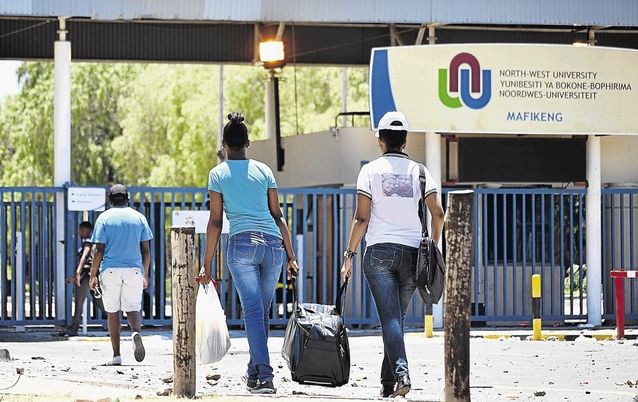
Students at North West University’s Mahikeng campus. Picture: SOWETAN
ONE of the chemistry classes I took at the University of Cape Town (UCT) in the 1980s was taught by Prof Alistair Stephen, the Oxford-trained chair of organic chemistry. A brilliant chemist, the professor always wore a jacket and tie, and delivered his lectures in a nasal Oxford drawl.
To students in the struggle movement, professors such as Stephen appeared to be the living establishment. I remember clearly my astonishment at finding out that he had participated in a student-staff collaboration that had successfully campaigned to keep the apartheid police off campus and preserve UCT as a haven for freedom of expression.
I should not have been so surprised, because over the years, during the time I have spent on campuses across the world, it has become clear that every scholar on every one of the great campuses shares a common pursuit of the truth, no matter what their field of study. That pursuit is possible only through open debate and contestation in a space where proponents are assured of no threat of violence and personal vilification.
Evidence-based argument is the hallmark of the progressive intellectualism that defines every leading university, from Bangalore to Berkeley to Cape Town. Scholars judiciously assemble evidence into a coherent argument feeding human progress. We can look to the north and south, to the east and west, for countless examples where open rational debate is the proven antidote to tyranny and oppression.
Our universities form the cornerstone of this progressive world view, which guards our hard-fought freedoms to protest, to differ, to convince and to learn. Our discoveries come through freedom of expression making our public policy less partisan, our health care more effective and our analytical and artistic commentary more profound.
The protesting students point to problems in our country both on and off campus that we cannot ignore. The professoriate on many campuses shows little resemblance to SA’s largely black and African demographic. Even the red gowns in which we cloak our doctoral graduates have been copied from the Oxbridge system that honours our colonial past, while bearing no resemblance to our local university colours that should be celebrated on graduation day.
Our faculties are under pressure to deliver quality graduates sourced from an unevenly resourced primary education pool. The prevailing racial inequity borne out by every economic metric lines the base of our national frustration, but do violent interventions not perpetuate a male-dominated culture of the might-is-right rule of law that our women and children suffer from daily? When some among us throw down their books and march through the campus with torches to burn down the very means that promises a path out of poverty, we must speak out.
In just a few days, more than 900 members of the UCT community have endorsed an open letter, available on the university’s website, rejecting violence and divisiveness. From lecturers to professors, students and tutors, from administrative to teaching staff, we all fear the loss of free speech and are alarmed by the rise in demagoguery. This richly diverse ethnic, racial and religious citizenry cautions that our right to reason without the fear of physical violence is being usurped.
Our freedom to speak and differ came from such leaders as Albert Luthuli and Nelson Mandela. It came at the cost of the lives of heroes such as Steve Biko and Chris Hani.
The unexpected alliance between reserved professors and rebel students seeking to overcome social challenges has been the strength of our progressive universities. Our solutions to social ills will come, not in the rough and tumble of social media’s instant proclamations and divisive digs, but through considered scholarship and debate. We warn that if we cannot debate and differ, free of violence, on a university campus, we risk losing it all.
• Naidoo is a professor of chemistry at UCT and research chair of scientific computing


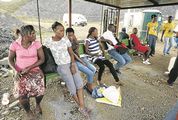
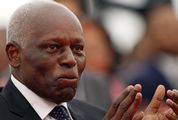




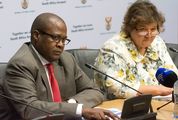


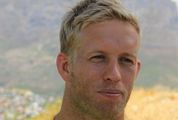











Change: 0.40%
Change: 0.47%
Change: -0.49%
Change: 0.53%
Change: 1.03%
Data supplied by Profile Data
Change: 1.71%
Change: 1.28%
Change: 0.40%
Change: 0.00%
Change: 1.64%
Data supplied by Profile Data
Change: -1.27%
Change: 0.00%
Change: 0.05%
Change: -0.08%
Change: 0.35%
Data supplied by Profile Data
Change: -0.02%
Change: 0.21%
Change: -0.06%
Change: 0.53%
Change: 0.70%
Data supplied by Profile Data